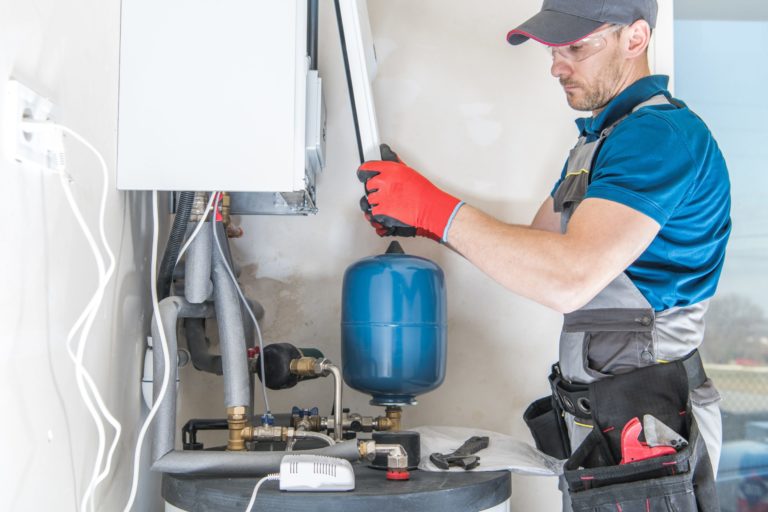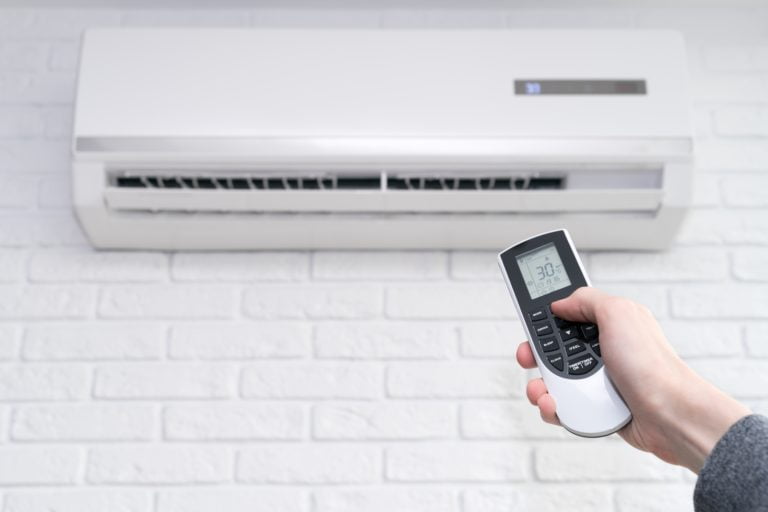Power outages can happen to anyone at any time. They can be caused by storms, accidents, or simply a power surge. When your power goes out, it can be a frustrating experience. You may be without power for hours or even days.
While this is usually an inconvenience, it can become a more troublesome problem during extreme heat or cold. Without a way to power your home’s heating, ventilation, and air conditioning (HVAC) system, the temperature can be uncomfortable and even dangerous depending on the outdoor temperature. So, how do you power your HVAC system during an outage?
One option you may be considering is using a generator to power your home’s air conditioning (AC) system. But can a generator really power your HVAC system? Keep reading to find out.
Can a generator power an HVAC unit?

The short answer is yes, a generator can power an HVAC unit. However, the generator will need to be sufficiently sized to power the HVAC unit. So, you’ll need to know what size generator to run central air and heating at your home, which we’ll cover more on below. Additionally, the generator should be placed close to the AC unit to avoid any potential power loss.
In order to power an AC unit with a generator, you will need to have your system rewired. An extra outlet will need to be installed at your circuit breaker, and an automatic transfer switch will need to be installed. This is because the generator will need to be connected to the breaker box, and the transfer switch will allow the unit to be turned on and off automatically.
Tips for using a generator to run your HVAC unit.
If you’re considering using a generator to power your home’s air conditioning unit during an emergency, there are a few things you need to know. First, not all generators are created equal, some can only be used to power certain appliances, while others can be used to power everything in your home. Second, you need to make sure that the generator is properly sized for the load it will be carrying. And finally, you need to take into account the start-up load of the HVAC unit.
Most generators are rated in watts or kilowatts. You’ll need to find out how many watts or kilowatts your HVAC unit uses and make sure the generator is capable of supplying that amount of power. A typical air conditioning unit will use between 1,500 and 5,000 watts, so a generator with a rating of at least 6,000 watts is recommended.
The type of fuel the generator uses is also important. If the generator runs on gasoline, it will need to be refueled frequently. If the generator runs on propane or diesel, it will need to be refueled less frequently. However, propane and diesel generators are more expensive to operate than gasoline generators.
If you have any questions about sizing a generator for your needs, contact a qualified electrician for assistance.
What are the types of generators?

There are three primary types of generators, including standby generators, portable generators, and inverter generators.
Standby generators are permanently installed, and they automatically turn on when the power goes out. They’re the most expensive type of generator, but they’re also the most reliable.
Portable generators are the most popular generator. They are small and lightweight, so they’re easy to move around. They also run on gasoline, so they’re easy to start. However, they’re not as reliable as standby generators, and they’re not as efficient.
Inverter generators are the most efficient type of generator. They run on propane or gasoline, and they produce less noise and emissions than other types of generators. However, they’re also an expensive type of generator.
Consider using your generator to power your AC unit during an outage.
Altogether, a generator can be an important piece of backup power for your home and can be used to power your HVAC system in the event of a power outage. It’s important to consider the size of the generator you’ll need to ensure that it can handle the load of your AC unit.





